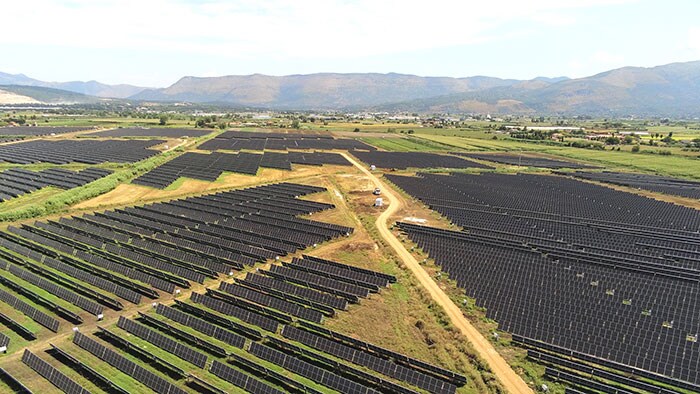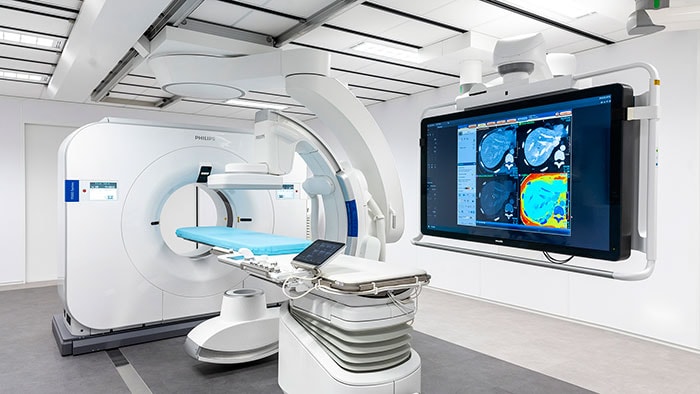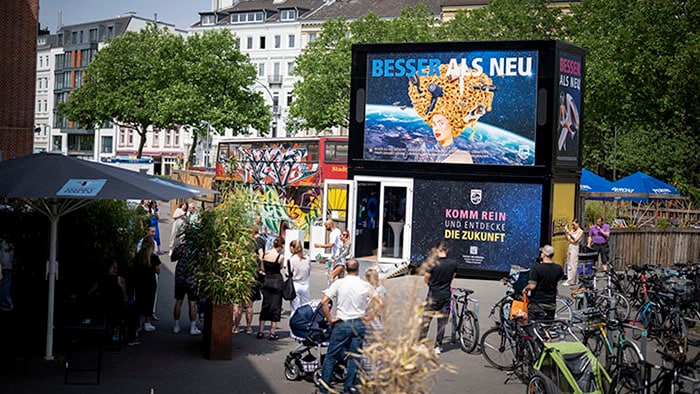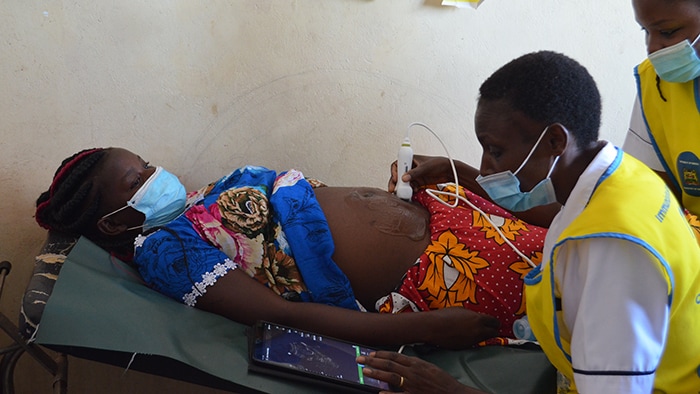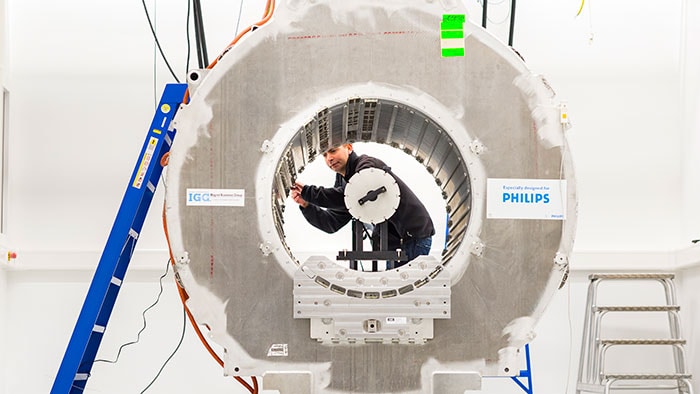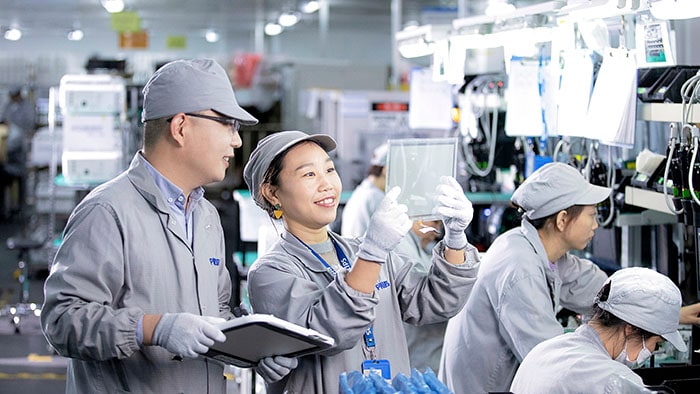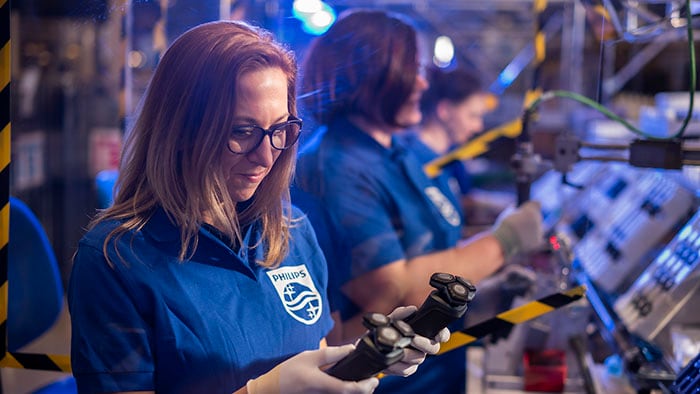On December 3, COP28 will host its first ever dedicated Health Day, addressing growing and urgent worldwide concern about the impact of climate change on people’s health. In the run-up to COP28, we spoke with Robert Metzke, Global Head of Sustainability, on how Philips has continued to make steps to embed sustainability and climate action in healthcare delivery. With its Scope 1 (internal) and Scope 2 (energy sourcing) emissions firmly under control, the company has turned its sights on partnering to reduce its Scope 3 emissions – those beyond its direct control – to ensure end-to-end value chain sustainability. In early 2023, Philips became the first health technology company to have its entire value-chain CO₂ emissions reduction targets approved by the Science Based Targets initiative (SBTi).
What is Philips’ focus at COP28?
Robert Metzke: One of the best parts of my job is engaging with inspiring thinkers - from international organizations, governments, business companies and civil society - to learn from each other’s expertise, share our own experience, embrace new ways of thinking and operating, and galvanize shared action to tackle global challenges. Our focus at COP28 is extending our sustainability impact with the healthcare industry by engaging with governments and partner stakeholders. In the healthcare industry, there’s strong global momentum – a huge number of care providers recognize that they need to tackle their impact on the environment, in terms of both carbon emissions and beyond. In our conversations with hospitals, they tell us they want to commit to become carbon neutral. We can help them start and scale with our decades of experience, our in-house expertise, successful case studies and best practices.
In healthcare, the main share of carbon emissions (71%) are indirect emissions caused by the production and transportation of goods and services that hospitals purchase, such as medicines, food, equipment, clothing, and waste treatment [1]. Reducing these is a big opportunity. The good news is that suppliers are also focused on this topic, where increasingly a combination of legislation, transparency, reporting pressure, and employees who prefer to work for sustainable companies is driving change. The critical part is the capability to act. Philips builds capabilities with its customer and suppliers, providing very practical help.
What capabilities does Philips have to contribute the improving sustainability in healthcare?
Robert: Underpinned by innovation, digitalization and collaboration, Philips’ efforts to drive sustainable healthcare are based on 1) Energy efficiency within the company’s own operations and across our product portfolio, with an added focus on reducing the amount of energy its products consume when in use; 2) Resource efficiency to maximize the value of our products and solutions over their lifetime, while minimizing material and resource use and reducing waste; 3) Care pathway optimization by co-creating new (digital and circular) health solutions that reduce healthcare’s carbon footprint and enable the delivery of quality care to those who need it, especially in medically underserved communities.
What approaches is Philips taking to achieve its energy and resource efficiency goals?
Robert: Since 2020 our global operation is carbon neutral, using 100% renewable electricity. We continue to build new partnerships for renewable electricity.” An example is the consortium led renewable energy power purchase agreements (PPAs) through which Philips and global brewing company HEINEKEN agreed to purchase the output of energy company Cero Generation’s new 70MW Pontinia agrivoltaic solar farm project in Lazio, Italy. The agricultural element of the project will also provide crop-growing experience and training to vulnerable and socially excluded people in the Lazio region.
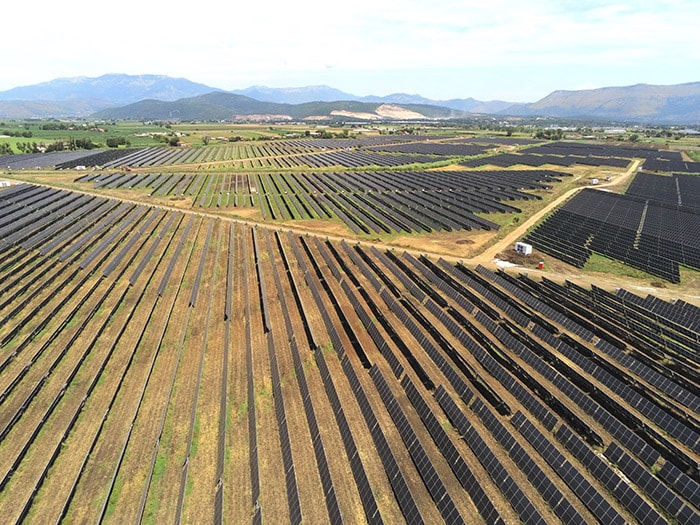
In terms of resource efficiency, Philips is rigorously applying its EcoDesign principles to expand its portfolio of energy-efficient, circular, digital and cloud-based innovations. In this way, it can help healthcare systems address their most pressing challenges, including the cost of care, staff shortages, and growing health disparities, while at the same time reducing their environmental impact.
How do Philips’ products help healthcare providers to become more resource efficient?
Robert: Digital workflows and the shift to cloud-based solutions (versus on-premises solutions) are significantly more resource-efficient, while software solutions and artificial intelligence (AI) create more efficient workflows and enable remote services that increase access and reduce travel time for staff and patients. By addressing workflow efficiency and complex health challenges, new-AI enabled innovations can also increase access to quality care and enable better use of resources and improved energy efficiency.
Examples in our portfolio include Philips EPIQ Elite Ultrasound, which uses 37% less power than its predecessor due to a re-designed system architecture, and MRI scanners equipped with Philips’ unique BlueSeal magnet technology installed globally have saved more than 1.5 million liters of helium since it was first introduced in 2018 – preserving one of the world’s most finite resources.
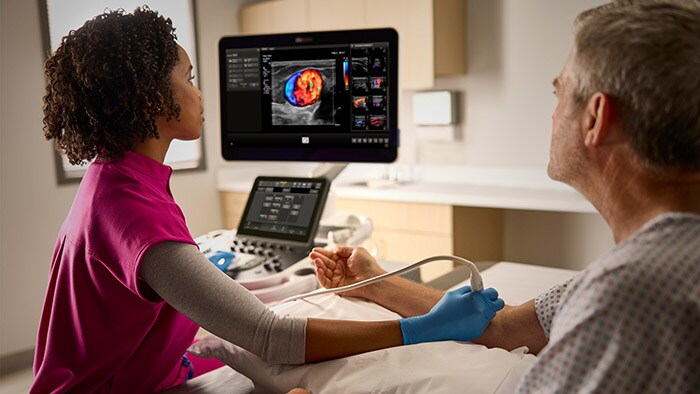
How is Philips collaborating with healthcare providers to share know-how and knowledge? [1] Karliner, Josh, et al. Health Care’s Climate Footprint. Health Care Without Harm, September 2019.
Robert: To address emissions of its customer base, Philips actively shares its expertise and experience in emissions reduction and circular practices with its customers. For example, Philips and Vanderbilt University Medical Center recently shared research demonstrating how decarbonizing healthcare can also reduce cost.
Similar analyses have been conducted by Philips at Tampere Heart Hospital – Tampere University Hospital (Tampere, Finland), Champalimaud Foundation (Lisbon, Portugal) and County Durham and Darlington NHS Foundation Trust (Darlington, UK). As part of a new research partnership with Dutch Hospital consortium EWUU (Eindhoven University of Technology, Wageningen University & Research, Utrecht University, and University Medical Center Utrecht), Philips is helping to develop circular solutions aimed at minimizing the usage of disposable products in hospitals.
How does reducing carbon emissions fit into the larger picture of sustainable healthcare?
Robert: Let's not suffer from carbon myopia; climate is crucial, but let's understand that it's not something that can be solved as a standalone topic. Sustainable healthcare also means increasing access to care. For example, in November we received a second round of funding from the Bill & Melinda Gates Foundation to accelerate global adoption of AI algorithms on Philips’ Lumify Handheld Ultrasound platform, addressing the worldwide shortage of healthcare workers by putting a diagnostic tool previously reserved for expert technicians in the hands of midwives.
Share on social media
Topics
Contact

Joost Maltha
Philips Global Press Office Tel: +31 6 10 55 8116
You are about to visit a Philips global content page
Continue




